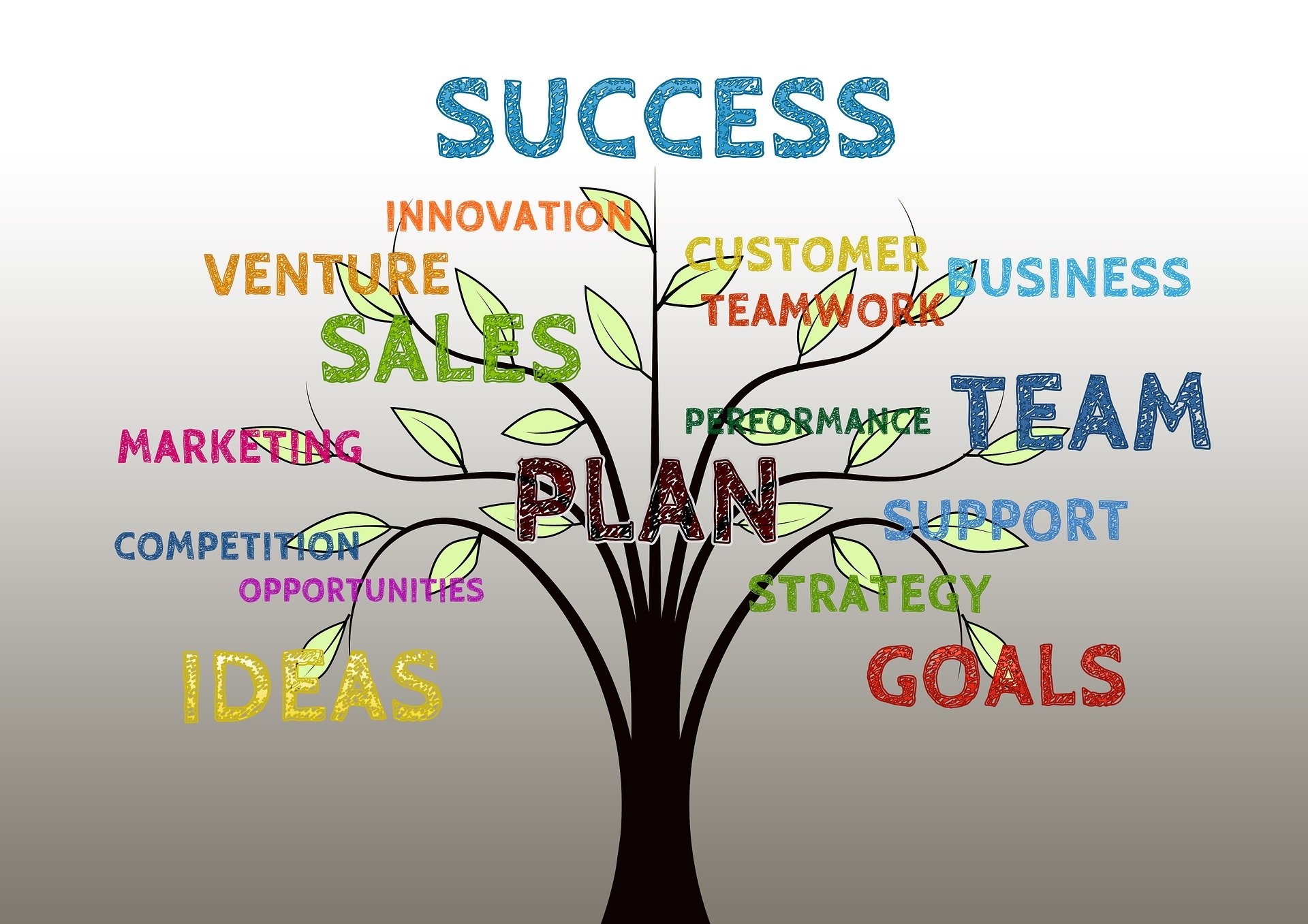SaaS has expanded significantly in recent years as businesses increasingly use cloud-based solutions to optimize operations and cut expenditures on IT. This increase in demand has made the SaaS industry fiercely competitive. As a result, sales play a vital role in the success of SaaS products. While the software’s functionality and quality are essential, the sales activities drive customer development, revenue generation, and company expansion. Moreover, a strong sales strategy can enable SaaS companies to highlight the value and advantages of their products, set themselves apart from competitors, and persuade potential consumers to purchase.
Nonetheless, managing the sales process internally can be excessively challenging, which is why it is highly recommended that SaaS entrepreneurs outsource the sales aspect of their businesses to sales teams. This article will explore the concept of sales outsourcing specifically for the SaaS industry. If you lack the time or inclination to read this blog, feel free to reach out to us for any inquiries you may have.
Sales Outsourcing

Outsourcing sales have emerged as a strategic option for SaaS companies seeking to optimize their sales processes and achieve faster results. The concept of sales outsourcing is that Companies can partner with external sales teams to manage several areas of the sales function, including lead generation, prospecting, qualification, and even closing deals. With this strategy, SaaS companies can benefit from the skills and resources of seasoned sales experts without starting from scratch with an internal sales force.
What Is B2B Saas Sales Outsourcing?
From the previous section, we have seen what sales outsourcing is. Now, let’s apply it to B2B SaaS. B2B SaaS sales outsourcing refers to partnering with external sales teams or agencies to handle the sales processes and activities for a software as a service (SaaS) company. In this model, the responsibility of selling the SaaS product is delegated to a specialized third-party sales firm, allowing the B2B company to focus on its core competencies while leveraging the expertise and resources of the outsourced sales team.
SaaS sales outsourcing offers significant advantages for SaaS companies, enabling them to leverage external expertise, increase sales effectiveness, and focus on core competencies. By carefully selecting the right outsourcing partner and establishing effective collaboration, companies can optimize their sales efforts and achieve sustained growth in the competitive SaaS marketplace. In the next section, we will explore this deeper.
5 Benefits Of Outsourcing Sales For Your Saas Product

There are many advantages to outsourcing SaaS product sales. By recognizing these potential benefits, you can better understand if outsourcing sales are the right choice for your SaaS product. Moreover, carefully evaluating your in-house sales capabilities, limitations, and the advantages of outsourcing will help you decide to optimize your sales processes and drive growth.
- Access To Specialized Expertise
Outsourced sales teams often possess extensive knowledge and expertise in the SaaS industry, market trends, and customer preferences. By collaborating with an external sales team, you gain access to a wealth of specialized insights and domain-specific knowledge. This valuable expertise can be leveraged to enhance your sales outcomes significantly, enabling you to make more informed decisions and develop effective sales strategies.
- Scalability And Flexibility
Outsourcing sales provides you with the advantage of scalability and flexibility. With an external sales team, you can easily adjust your sales resources to align with your business needs. During peak periods of high demand, you can quickly scale up your sales team by adding more representatives. Conversely, during slower times, you have the flexibility to downsize your sales efforts, reducing costs without compromising efficiency. This adaptive approach to managing your sales function allows for agility and ensures that your resources are optimized at all times, aligning with the changing dynamics of your business environment.
- Cost-Effectiveness
Building and maintaining an in-house sales team can be costly, involving expenses such as salaries, benefits, training, and infrastructure. One of the key advantages of outsourcing sales is its inherent cost-effectiveness, which can have a positive impact on your overall business operations. When you choose to build and maintain an in-house sales team, you encounter various fixed costs that can significantly impact your budget and as a result, your SaaS product. These costs include salaries, benefits, training programs, and the infrastructure required to support the sales process.
In contrast, outsourcing sales eliminate many of these fixed costs, as you only pay for the sales services rendered by the outsourced sales partner. This approach allows you to allocate your financial resources strategically, ensuring that you can focus on other critical things at hand, which is your software. By entrusting your sales function to a specialized external sales partner, you can redirect your budget toward product development, marketing initiatives, customer support, or any other strategic investments that drive business growth.
- Faster Time To Market
Outsourcing sales can expedite your time to market by leveraging the external sales partner’s existing infrastructure, sales processes, and networks. In today’s fast-paced business environment, speed is often a crucial factor in gaining a competitive edge. Now, this is even more necessary for the SaaS industry. The outsourced sales partner, having worked with various clients and developed robust sales strategies, can provide you with a head start. They possess a deep understanding of the target market, customer preferences, and the most effective sales approaches. By tapping into their knowledge and leveraging their networks, you can gain access to a wider pool of potential customers, allowing you to reach your target audience more rapidly.
Moreover, the outsourced sales partner’s existing sales processes and infrastructure can streamline your sales cycle. It’s more like a plug-and-play thing.
- Reduced Risk
One of the significant advantages of outsourcing sales is the reduced risk it offers in comparison to building and managing an internal sales team. When you opt for in-house sales, you face various risks and challenges associated with hiring, training, and managing a sales team.
By outsourcing sales, you transfer a significant portion of these risks to the outsourced sales team. All you will have to do then, is just to sit back and see your reach grow. Outsourced sales teams assume the responsibility for achieving sales targets, managing the sales team, and ensuring that the necessary expertise and resources are in place to drive successful sales outcomes. When it comes to hiring professionals for themselves, the outsourced sales partners is typically equipped with established recruitment processes and access to a wide talent pool. They have experience in identifying and selecting skilled sales professionals who align with your business needs and requirements.
Knowing The Perfect Time To Outsource Sales For SaaS Product
Determining the perfect time to outsource sales development for your SaaS product is crucial for maximizing the benefits and ensuring growth. While the optimal timing may vary depending on individual circumstances, here are some key factors to consider when deciding when to outsource sales:
- Resource Limitations: If your internal sales team is stretched thin or needs more expertise and bandwidth to handle sales development activities effectively, it may indicate that it’s time to consider b2b saas sales outsourcing. When your team is overwhelmed, outsourcing can provide the additional resources and specialized skills needed to drive sales growth.
- Market Expansion Or Entry: Outsourcing sales can be a strategic move when your business plans to enter new markets, expand its customer base or launch a new product. Outsourced sales teams often have existing networks, market knowledge, and experience in reaching new target audiences, enabling faster market penetration and revenue generation.
- Inconsistent Or Stagnant Sales Performance: If your business has been experiencing unstable or low sales performance despite internal efforts, bringing in an outsourced sales team might be beneficial. Outsourcing can bring fresh perspectives, new strategies, and proven methodologies to revitalize sales efforts and drive revenue growth.
- Scalability Requirements: Outsourcing sales can provide scalability if your business anticipates significant growth in sales volume or customer acquisition. By leveraging the resources and expertise of an outsourced sales team, you can rapidly scale your sales efforts without the need for extensive internal hiring, training, and infrastructure investment.
- Cost Considerations: Evaluating the cost-effectiveness of outsourcing sales is essential. Outsourcing can offer a more cost-efficient solution if the cost of building and maintaining an internal sales development team outweighs the potential benefits. It eliminates recruitment, training, salaries, benefits, office space, and technology infrastructure expenses. So, if the money you spend on your internal sales team is negatively affecting your business finance, then you may have to outsource.
- Strategic Timing And Planning: Outsourcing sales activities should align with your business strategy and objectives. Carefully assess the market conditions, competitive landscape, and internal capabilities to determine the most suitable time for outsourcing. Conduct thorough planning and due diligence to ensure a seamless transition and successful partnership.
How to Measure The Effectiveness Of Your Outsourced Sales Team
Measuring the effectiveness of your outsourced sales team is vital for evaluating the success of your partnership and making informed, data-driven decisions for your SaaS product. By monitoring key metrics, you can determine the effectiveness of the outsourced sales team and gauge its impact on your company. When assessing the success of your outsourced sales efforts, consider the following key metrics tailored specifically to the SaaS industry:
Monthly Recurring Revenue (MRR)
Tracking the Monthly Recurring Revenue generated by your outsourced sales team is a critical metric for checking the effectiveness of your sales processes. MRR reflects the predictable revenue stream from your SaaS subscriptions. By monitoring the MRR generated through outsourced sales, you can evaluate the impact on your company’s bottom line. Compare this revenue with the costs associated with outsourcing to determine the return on investment (ROI) and overall profitability.
Customer Acquisition Rate
The Customer Acquisition Rate measures how effectively the outsourced sales team is acquiring new customers for your SaaS product. This metric indicates the success of their lead generation and prospecting efforts. Monitor the growth in your customer base and compare it with previous data or industry benchmarks to assess the performance of the outsourced sales team. A higher acquisition rate suggests an effective lead.
Conversion Rate
Evaluate the Conversion Rate of leads generated by the outsourced sales team. This metric calculates the proportion of leads that successfully convert into paying clients for your SaaS product. A higher conversion rate indicates effective lead qualification, sales strategies, and closing techniques employed by the outsourced team. Monitor this metric to identify areas for improvement. Also, when necessary, refine the sales strategy to increase conversion rates over time.
Sales Cycle Length
Measuring the Sales Cycle Length provides insights into the efficiency and effectiveness of the outsourced sales team in closing deals for your SaaS product. Analyze the average time it takes for the contracted sales team to convert leads into customers. A shorter sales cycle indicates greater effectiveness in advancing prospects through the sales pipeline. Assess the sales cycle length to identify potential bottlenecks, optimize sales processes, and improve overall productivity and revenue generation.
Customer Lifetime Value (CLTV)
Monitoring the Customer Lifetime Value helps assess the long-term value generated by the outsourced sales team for your SaaS product. CLTV measures the projected revenue a customer is expected to generate throughout their entire relationship with your company. By evaluating CLTV, you can determine the quality of customers acquired through outsourced sales efforts and their impact on your business’s profitability and sustainability.
Activity And Output Of The Outsourced Sales Team
Assessing the activity and output of your outsourced sales team is essential to determining their performance and contribution to the success of your SaaS product. By tracking key performance indicators (KPIs) specifically tailored to the SaaS industry, you can gain insights into their productivity, effectiveness, and engagement. Consider the following factors to assess the activity and output of your outsourced sales team:
- Keep Track Of The Number Of Phone Calls Made and meetings Scheduled
- Product demos conducted
- Proposals Sent
- Emails exchanged by the outsourced sales team.
These KPIs provide valuable insights into their level of activity and engagement.
Customer Satisfaction And Feedback
Gathering opinions from clients who have interacted with the outsourced sales team is crucial to understanding their satisfaction and the effectiveness of the sales process. Conduct surveys to measure client satisfaction levels and gather feedback on their experience with the sales team. Additionally, encourage post-sale exchanges to obtain direct feedback from customers regarding the quality of the sales process, their interactions with the sales team, and their overall satisfaction. Customer feedback offers valuable insights into the standard of the sales process, customer interactions, and the general satisfaction levels achieved through the outsourced sales efforts.
Cost Per Acquisition
Cost Per Acquisition (CPA) is a crucial metric to assess the efficiency and cost-effectiveness of the outsourced sales team in acquiring new customers for your SaaS product. By calculating the CPA, you can evaluate the return on investment (ROI) and determine the effectiveness of the outsourced sales efforts in generating new business. Tailoring this metric specifically for the SaaS industry allows you to make informed decisions about resource allocation and refine your sales strategies.
How To Get the Right Sales Outsourced Team

Choosing the right outsourced sales partner is a critical step in successfully outsourcing sales for your SaaS product. The outsourcing partner you select will play a significant role in shaping the success of your sales efforts and directly impact your business outcomes. Here are key considerations and steps to guide you in choosing the right outsourcing partner:
- Define Your Requirements
Begin by clearly defining your specific requirements and expectations from an outsourced sales team. Consider factors such as industry expertise, target market knowledge, sales process proficiency, scalability, cultural fit, and communication capabilities. Understanding your needs will help you identify potential sales partners that align with your business objectives.
- Assess The Outsourced Team Capabilities
Evaluate the outsourcing partner’s capabilities to determine if they can meet your specific sales requirements. Assess their team’s expertise, skill set, and experience in selling SaaS products. Inquire about their lead generation strategies, sales processes, and the tools and technologies they utilize. Request references from their existing clients to gain insights into their performance.
- Communication And Collaboration
Effective communication and collaboration are essential for a successful partnership. Evaluate the outsourced sales team’s communication channels, response time, and availability. Determine how they will interact with your internal team and ensure they can work collaboratively towards common goals. Look for a partner who values transparent and proactive communication.
- Scalability And Flexibility
Assess the scalability and flexibility offered by the external sales team. Consider your growth plans and evaluate if the partner can accommodate your expanding sales needs. Determine their ability to ramp up resources, handle increasing sales volumes, and adapt to market changes. A flexible external sales team will be able to align their services with your evolving business requirements.
- Contract And Service-Level Agreements (SLAs)
Review the contract and SLAs provided by the outsourcing partner. Ensure that they clearly define the scope of work, deliverables, timelines, performance metrics, and any other crucial terms. Seek legal counsel to review the contract and ensure it protects your interests.
- Financial Stability And Pricing
Evaluate the financial stability of the outsourcing partner to ensure their long-term viability. Consider their pricing structure and assess if it aligns with your budget and projected ROI. Balance cost considerations with the partner’s capabilities, expertise, and value they bring to your sales operations.
- Start With A Pilot Project
Consider starting with a pilot project to test the outsourcing partner’s capabilities and compatibility. A pilot project allows you to assess their performance, communication, and alignment with your expectations on a smaller scale before committing to a long-term partnership.
Choosing the right outsourcing partner is a strategic decision that requires careful evaluation and consideration. By following those steps and thoroughly assessing potential sales partners, you can select a partner who not only meets your sales requirements but also becomes a trusted extension of your team. A strong partnership with the right external sales provider can drive sales growth, enhance your market reach, and contribute to the overall success
Tips For Working With A Sales Outsourced Sales Team
Working with an outsourced sales team requires effective collaboration, clear communication, and a shared understanding of goals and expectations. Here are some tips to help you establish a successful working relationship with your sales outsourcing partner:
Clearly Define Objectives
Communicate your sales objectives, targets, and expectations to the outsourced sales partner. Ensure they thoroughly understand your product, target market, value proposition, and sales processes. The alignment of objectives is essential for driving mutual success.
Establish Open Lines of Communication
Foster open and transparent communication channels with the outsourced sales partner. Regularly communicate updates, provide feedback, and address any concerns promptly. Establishing a solid communication framework ensures a smooth working relationship and enables quick problem-solving.
Give Thorough Instruction
This looks like the first tip, but it will help you. Invest time in educating the sales personnel. It is your field and not theirs. Yes, they will research but Inform them about your product’s specifications, advantages, and market competition. Offer sales materials, product demonstrations, and any other resources required to give them the knowledge they need to market your product successfully.
Establish Reporting Mechanisms
Implement a robust reporting system that allows you to track and measure the outsourced sales team’s performance. Specify your key performance indicators (KPIs) and create a timetable for regular reporting. You can use this to track development, pinpoint growth areas, and make informed decisions.
Maintain Performance Reviews
Conduct regular reviews with the external sales partner to measure progress, discuss difficulties, and provide comments. Share insights, analyze performance metrics, and jointly identify areas for improvement. Performance evaluations encourage lifelong learning and development.
Build A Long-Term Partnership
Focus on building a long-term partnership with the outsourced sales firm. Continue to review the partnership’s effectiveness, go over the project’s parameters, and reevaluate how well your company’s goals and the outsourced sales partner’s skills line up. Over time, a solid and sustainable collaboration produces superior results.
Building long-term relationships with your outsourced sales team is essential for successfully marketing your SaaS product. Cultivating strong relationships and fostering collaboration can improve sales performance, customer satisfaction, and overall business growth. The following are vital strategies for creating long-term alliances:
Establish A Rapport
Encourage a friendly work atmosphere fostering a sense of community and shared objectives. Encourage cooperation, respect, and teamwork among your internal team members and the contracted sales team.
Give Incentives and Career Growth Opportunities
Provide financial or non-monetary tips to motivate the outsourced sales team. Consider commission structures, bonuses, or performance-based rewards tied to specific sales targets or milestones. Offer professional development and growth opportunities within the outsourced sales team. Provide training programs, mentorship, and clear paths for advancement to retain talented sales professionals and maintain motivation. Remember, this is not a must. It is just a tip!
Conclusion
Sales Outsourcing for SaaS products can offer numerous benefits and opportunities for businesses seeking to boost their sales effectiveness. By partnering with a specialized outsourced sales team like Elite Outsource, companies can tap into the expertise, scalability, and cost savings while focusing on their core competencies. Remember, communication, feedback, and reporting help maintain transparency and maximize the results of outsourced sales endeavors.




